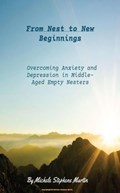Middle age often ushers in a period of profound change, and one of the most significant shifts is the transition to an empty nest. As children embark on their journeys, the once bustling home becomes a quieter space, and parents may find themselves grappling with a complex mix of emotions. While the empty nest represents newfound freedom and opportunities for self-discovery, it can also be accompanied by feelings of melancholy, loneliness, and a sense of loss. The void left by departed children may trigger a period of introspection, causing individuals to reassess their identities and priorities. This juncture can become a breeding ground for depression and anxiety, as the fear of the unknown future and the nostalgia collide. Coping with these emotions requires a delicate balance of self-reflection, seeking support from friends and loved ones, and, in some cases, professional guidance. However, it's essential to recognize that the empty nest phase is not only a time of mourning but also an opportunity for personal growth and renewed connections. By acknowledging and addressing the challenges, individuals navigating through middle age can navigate this transition with resilience and ultimately find fulfillment in the evolving chapters of their lives.

